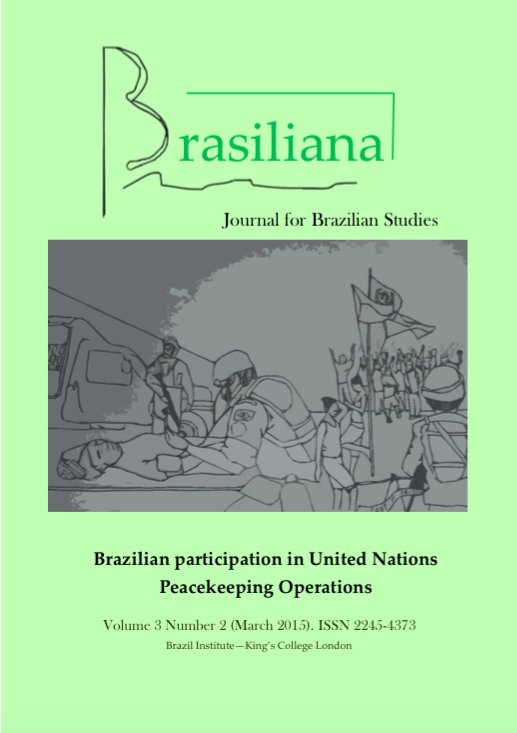Men in transit: The spectrum of masculinity in Caio Fernando Abreu’s White Limit (1970)
Main Article Content
Abstract
In the present work, we aim at discussing the construction of subjectivity in relation to gender categories, especially in regards to male identity, in Caio Fernando Abreu’s first novel White Limit (Original title: Limite branco, 1970). We believe that the protagonist’s process of aging, alongside with his subject’s formation, in the narrative, takes us to face a fluidity, which puts at stake the notions of what is taken for granted as appropriate for the individual. Studies on the displacement of the contemporary subject, Gender Studies, and on men's studies in particular, will serve as the theoretical apparatus for the discussions raised here.
Article Details
How to Cite
Stacul, J. F., & Gonçalves, G. R. (2015). Men in transit: The spectrum of masculinity in Caio Fernando Abreu’s White Limit (1970). Brasiliana: Journal for Brazilian Studies, 3(2), 321–336. https://doi.org/10.25160/bjbs.v3i2.18174
Issue
Section
General Articles
![]()
Articles published in Brasiliana are licensed under a Creative Commons Attribution-NonCommercial-NoDerivs 3.0 Unported License.

